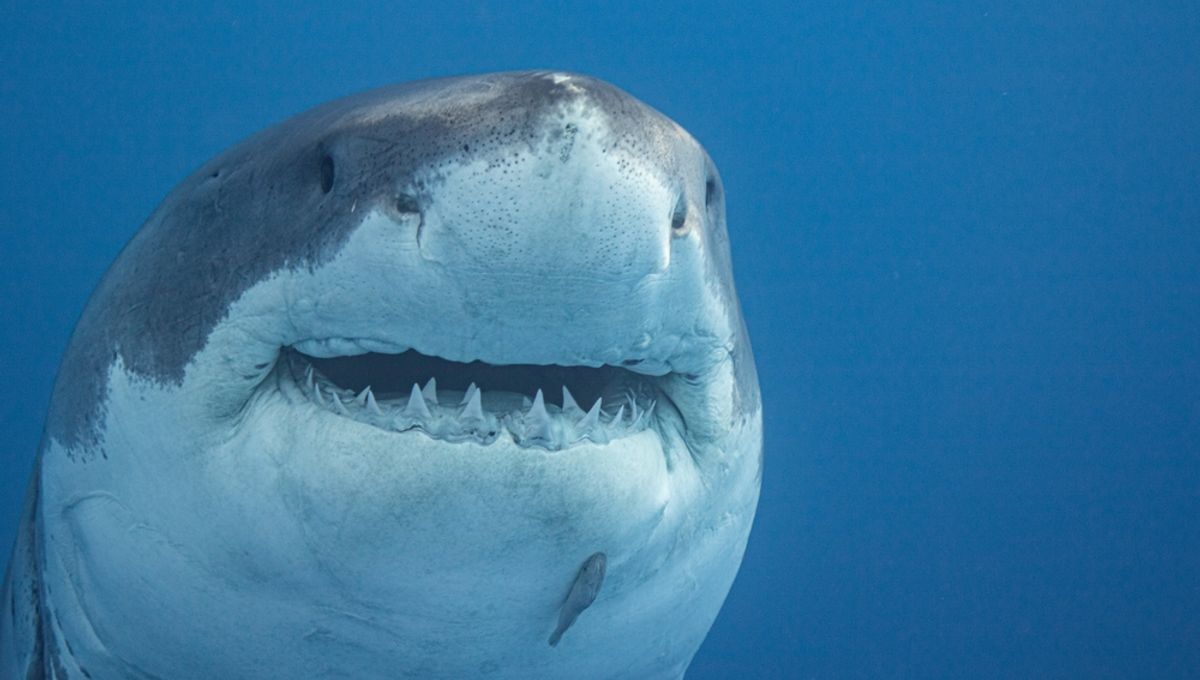
Ever wondered why you never see great white sharks in aquariums? It can’t be their size alone, we keep orcas in captivity. So what makes great whites different?
The great white shark (Carcharodon carcharias) is one of the ocean’s most powerful and iconic apex predators, known for its massive size, serrated teeth, and a reputation that has made it both feared and misunderstood in popular culture.
One of the most recent attempts to keep a great white shark in captivity took place at Japan’s Okinawa Churaumi Aquarium in 2016. The shark died after just three days.
Before this, there have been dozens of equally depressing attempts to put great white sharks on display for the public. The first known attempt was by Marineland of the Pacific, a California oceanarium and tourist attraction, during the mid-1950s. It survived for less than a day. SeaWorld also had a fair few shots at trying to home great white sharks during the 1970s, 80s, and 90s, all of which resulted in the shark dying or being released back to the wild within a couple of weeks.
In fact, in 2004 the Monterey Bay Aquarium became the only institution to keep great whites alive for longer than 16 days. They actually managed to stay alive and well for several months, however, this is very much the exception.
Great whites and aquariums just do not end well. There are a few theories about why these “tough guys of the oceans” fare so poorly in captivity.
A big issue is their diet. Great whites are archetypal apex predators. In the wild, they would have to be near-starved to eat anything but live prey. In a public aquarium setting, that is not easy, cheap, nor terribly good from a PR perspective. It’s worth noting that many of the great whites who struggled in captivity often refused to eat sufficient amounts.
Great white sharks are one of the unfortunate aquatic animals who have to constantly swim forward so water can pass over their gills to obtain oxygen. Since this species can often grow up to 6 meters (20 feet) in length, you’re going to need a hell of a tank to give it the breadth it requires. Naturally, these sharks also traverse huge distances in the wild. A female shark, known as Nicole, was once documented traveling from Africa to Australia and back again – a round trip of over 20,000 kilometers (12,400 miles) – in just nine months.
A tank that could even begin to mimic the size of the waters they feel comfortable in would be astronomically impractical. Once again, it would not be very entertaining from the perspective of a paying member of the public wanting to see a great white shark in the flesh.
Another theory suggests that the artificial environment of a glass tank could overwhelm or confuse these sharks’ incredibly sharp electroreception. This sensory perception enables them to detect subtle moves and changes in the marine environment. However, in a tank, it would be easily confused by the huge amount of stimuli, from glass walls to electronic equipment, surrounding them.
Things have also moved on from the 1990s. The past few years have seen a vast shift of public perception regarding large marine animals in captivity, namely thanks to the highly successful documentary Blackfish which exposed the practices of SeaWorld and their captive orcas.
It’s safe to say that a live great white shark exhibition today would not be the crowd-pleaser it would have been in years gone by.
An earlier version of this story was published in 2022.
Source Link: Why Don’t You Ever See Great White Sharks In Aquariums?